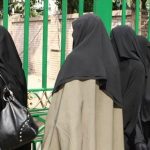UN agency tasks Nigeria on enforcement of anti-corruption laws
News Monday, July 1st, 2013By Eric Ojo, The United Nations Global Compact (UNGC) has urged Nigeria to
frontally tackle corruption by implementing and enforcing the
tenets of the UN convention against corruption in order to enable
the country benefit maximally from its huge natural resources.
The UNGC is a leadership platform for the development,
implementation, and disclosure of responsible corporate policies
and practices. The initiative which is largest corporate
sustainability initiative in the world – with 10,000 signatories based
in more than 140 countries, and Local Networks existing or
emerging in over 100 countries, brings companies together with
key stakeholder groups including; government, civil society,
labour, investors, educators and the UN.
The UN agency said Nigeria can achieve a successful
implementation and enforcement of international anti-corruption
convention by strengthening anti- graft policies, laws and
enforcement mechanisms in the country, adding that many
resource-rich countries like Nigeria were not receiving benefits
from extraction of their natural resources because of graft.
The UNGC also harped on the need for the Federal Government
to demonstrate more commitment towards reducing corruption
risks from procurement and contract processes of large-scale
projects that are designed to support sustainable development.
The Head, Transparency and Anti-Corruption, UNGC, Olajobi
Makinwa, gave the charge while speaking at an extractive
business dialogue on corruption with the theme: “Corporate
Action for Transparency in the Hydrocarbon Industry in Nigeria”
which was organised by the Nigerian Economic Summit Group
(NESG) at the weekend in Port Harcourt.
Makinwa observed that because of corruption and lack of
transparency, local citizens of many resource-rich countries like
Nigeria were not feeling the positive and developmental impact
from foreign investments in the extractive industry.
She however pointed out that there was an absence of robust
global standards and institutional mechanisms that promoted
revenue transparency and accountability in the
hydrocarbon/extractive industry previously to ensure
transparency and accountability in the sector.
According to her, in 2002 the Extractive Industry Transparency
Initiative (EITI) was formed as a global transparency standard to
ensure transparency and accountability in the extractive industry
by requiring extractive companies operating within EITI signatory
nations, to disclose their payments to the government, and the
signatory to disclose such receipts.
Also speaking at the event, the Chairman of the Nigeria Extractive
Industries Transparency Initiative (NEITI), Ledum Mitee, said the
Petroleum Industry Bill (PIB) before the National Assembly for
passage into law provides the excellent opportunity for Nigeria to
align its extractive industry governance to international best
practices and ensure that revenues from its oil, gas and mining
sector support national development.
Mitee said this could only be possible if the government can
muster the political will to ensure the early passage of a PIB that
weighs heavily on the scale of transparency, accountability,
competition and corporate governance.
Related Posts
Short URL: https://www.africanexaminer.com/?p=780




















